Everything You Know About Canada's "First Nations" Is Wrong!
Our present attitude towards Canada's "First Nations" is based on a series of illusions.
And what we think we do to help, has been killing them.
Ended
Everything you think you know is wrong:
1. First Nations are not aboriginal or indigenous.
2. Most Canadians have Indian ancestry; most Canadian Indians have European ancestry.
3. Life before contact was no peaceable kingdom. We are influenced by the Garden of Eden myth.
4. No Indian land was stolen. No Indians were harmed in the making of this country!
5. We think First Nations have a special concern for the environment. In fact, they did not believe the physical world was real.
6. "Native spirituality" was mostly invented in the 1960s and 70s. Real Indians are generally Christian, and more devout than other Canadians.
7. What we think we do to help, has been killing them.
Playing the Indian Card
Sir John A., Genocidal Maniac
The recent controversy about prime ministerial statues in Kitchener-Waterloo introduces the current state of play: our home is on Indian land, and Canada itself is an imperialist project. Were Sir John A. Macdonald's relations with the native peoples really cause for shame? A defense of his record, and Canada's.
There Are No Aboriginal Canadians
The idea of any one ethnic group being “native” or “aboriginal” to Canada is a social construct with no objective consistency. When we say “aboriginal” or “indigenous,” what we really mean, awkwardly enough, is “materially backward culture.” Using a euphemism has badly skewed our perceptions.
Nobody Here but Us Indians
Who, exactly, is an Indian? Get started on this, and there is only one consistent, satisfactory answer: we all are, at least if we think we are. It is not a racial category, and nobody wants to see it as a racial category. So what makes one person Indian, and the next not? Why do we have two kinds of Canadians?
Calling an Indian an Indian
There is nothing pejorative or even very inaccurate about the term “Indians.” By contrast, there are problems with any of the commonly suggested alternative terms. “First Nations,” “natives,” “aboriginal,” “indigenous,” and most of the names of individual tribes (they are tribes, not nations) enshrine false and often racist assumptions.
Got Wheel?
To point out the obvious, Indian culture before Europeans arrived was technologically backward. It was in the Stone Age. Contact with Europeans was therefore a huge net benefit in material terms. The European “invasion” was a good thing, not a bad thing, for Indians.
The Bounty of Eden
It is often claimed that, even if poor, Indian life was a matter of easy abundance; everyone had what they needed, and with less work. This overlooks the reality of chronic starvation.
Head-Smashed-In Buffalo Jump as Ecological Paradigm
We are tricked here by our euphemistic description of Indians as “aboriginal,” and by the ancient myth of the noble savage. Indians held no special respect for Mother Nature. They had no concept of “Nature.” Nor were their practices ecologically sound. Respect for nature comes with the Europeans.
The War of All Against All
The myth is that Europeans brought war, and before them, Indians lived in harmony and peace. This is the noble savage myth; this is projected from the Biblical story of the Garden of Eden. War was nearly constant and total, with a far higher casualty rate than among moderns. Peace and security came with the Europeans.
Want Slaves?
Most Canadian Indian cultures practiced slavery. Sure, so did nearly everyone at the time, but it is still true that life for many was not the idyll of freedom and equality we imagine; and the end of slavery came with the Christian Europeans.
A Fate Worse than Death
Capture in war commonly meant being tortured to death. This seemed to serve no religious nor military purpose. It was just cruelty for its own sake. The advent of Christianity seems to have meant moral as well as material progress for Indians.
Of Anthropophagy and Anthropologists; Of Cannibals and Kings
While we are at it, cannibalism was also widespread among Canadian Indians. Not really a moral issue, but it has been obscured and denied.
Mother Right and Father Left
Feminists and Marxists have both, for political reasons, invented an imaginary Indian society of sexual equality and classless social concord in which everything was shared. This is nowhere to be found in the real history. It was never fun to be an aboriginal woman.
A Pox on Both Your Longhouses
There is little historical evidence of the use of blankets infected with smallpox against the Indians. There was certainly no general intent by Europeans to introduce sickness to the Indians. The real culprit in the tragic epidemics that ravaged native populations may even have been aspects of native society itself.
The Last of the Beothuks
The Beothuks of Newfoundland are extinct. But there was no European genocide against them. The Newfoundland authorities were not even sure the Beothuks existed; but they went to great lengths to preserve and protect them.
What Cultural Genocide Doesn't Look Like
There was never a government attempt to wipe out Indian culture. Everybody loves what they think is Indian culture. There were good reasons for banning such Indian traditions as the potlatch and the sun (thirst) dance. And Indians were never forced to become Christians: they converted eagerly.
Yoda: Not a Real Indian. Although He May be a Lutheran
The common view is that Indians were traditionally deeply spiritual. But what is generally presented as Indian spirituality is a modern invention, based on European and Asian rather than Indian sources. European culture was seen by real Indians as spiritually superior.
Free Private Schools!
Residential schools were well-intentioned. They seem to have been on the whole benevolent. They were not imposed on the Indians; the Indians wanted them.
No Land Was Stolen from the Indians
The existence and nature of aboriginal title is debatable. Nevertheless, since the Royal Proclamation of 1763, the British and Canadian government have been scrupulous in taking possession of land only by formal treaty, with compensation for local Indians. This was done to secure their consent to the social contract, avoiding conflict--not just to get the land.
The Indian of the Imagination
There has been no general discrimination against Indians. To the contrary, North American popular and literary culture has always held them in unrealistically high regard, thanks to the myth of the noble savage. This has led to some awful policy choices.
Truth and Reconciliation: The Parody
The current government policy towards Canada’s Indians is supposed to be guided by the report of the Truth and Reconciliation Commission. Unfortunately, the report has no commitment to truth and is actively against reconciliation. We are accelerating down the wrong road.
Attawapiskat and the Healing Powers of U-Haul
The real problems on the reserves are due to a culture of dependency which is close to the opposite of traditional Indian culture. This, and an unacceptable apartheid, are nurtured by the reserves.
Audience is Canadians on the political right. It should be the same established and growing audience as for Rebel Media, Small Dead Animals, Five Feet of Fury, Mark Steyn.
Blog "Od's Blog" has been running for 13 years now; 3,527 hits last month. Also active on Facebook. Several web pages.
Would post ads on Small Dead Animals website, try for plugs or reviews from Instapundit, Five Feet of Fury, Mark Steyn, Rebel Media, Sun newspapers, Canada Free Press.
Naomi Riley, The New Trail of Tears. Encounter Books, 2016.
Makes some of the same arguments, but regarding American rather than Canadian Indians and government policies. Riley pinpoints the problem as the lack of property ownership. I think in the end this is too limited a view.
Tom Flanagan, First Nations? Second Thoughts. McGill-Queen's University Press, 2000.
Makes many of the same arguments. The present book, however, buttresses these with the historical background and evidence. Flanagan's approach is lawyerly and concentrates on the political issues. My own focus is more cultural and historical.
Frances Widdowson, Disrobing the Aboriginal Industry: The Deception Behind Indigenous Cultural Preservation. McGill-Queen's University Press, 2008.
Makes the point that current and traditional policy is for the advantage of a professional and bureaucratic class, and does nothing to help ordinary Indians. Focus is narrower than my own.
Tom Flanagan, Beyond the Indian Act: Restoring Aboriginal Property Rights. McGill-Queen's University Press, 2011.
Examines the problem of Indian lack of property ownership on reserves. This is one of the problems I deal with, in far less detail.
James Daschuk, Clearing the Plains: Disease, Politics of Starvation, and the Loss of Aboriginal Life, University of Regina Press, 2014.
Largely the counter argument to my own book. Claims that Canadian government treatment of the Indians of the prairies constituted "ethnocide."

Stephen K. Roney holds degrees from Queen's, Syracuse, and Ryerson universities. He has been columnist for a variety of publications, including Report, the Toronto Star, and the International Herald Tribune.
250 copies • Partial manuscript.
Anaphora Literary Press was started in 2009 and publishes fiction, short stories, creative and non-fiction books. Anaphora has exhibited its titles at SIBA, ALA, SAMLA, and many other international conventions. Services include book trailers, press releases, merchandise design, book review (free in pdf/epub) submissions, proofreading, formatting, design, LCCN/ISBN assignment, international distribution, art creation, ebook (Kindle, EBSCO, ProQuest)/ softcover/ hardcover editions, and dozens of other components included in the basic package.

250 copies • Completed manuscript.
Atlantic Publishing has been providing millions of readers information to jumpstart their careers, start businesses, manage employees, invest, plan for retirement, learn technologies, build relationships, and live rewarding, fulfilling lives. Our award-winning authors and publication staff strive to make our products the best and most up-to-date available. We go further than most publishers to get our customers the best products.
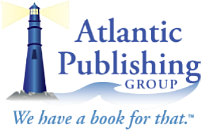
250 copies • Completed manuscript.
Koehler Books is an Indie publisher based in Virginia Beach, Virginia. Our team of dedicated professionals promises you a holistic publishing experience where you'll receive our full attention, collaboration, and coaching every step of the way. We offer two publishing models: a traditional non-fee model for the highest quality work, as well as a co-publishing model that includes creative development fees for emerging authors. Our titles are broad-based and include nearly every major non-fiction and fiction genre.

250 copies • Completed manuscript.
Motivational Press is a top publisher today in providing marketing and promotion support to our authors. Our authors get favorable rates for purchasing their own books and higher than standard royalties. Our team is at the forefront of technology and offers the most comprehensive publishing platform of any non-fiction publishing house including print, electronic, and audiobook distribution worldwide. We look forward to serving you.

Dear Author,
You worked hard to write your manuscript, and you know that expert assistance is needed to ready it for the market. But perhaps you didn’t realize that working with a publisher is no longer necessary—especially publishers who charge fees to produce your book upfront and "share" more of your revenue whenever a book is sold.
1106 Design is an author services company that has served over 4,000 authors since 2001. We offer all the editorial and design services you’d expect from a publisher, transforming your manuscript into a polished book. But here's the difference: we help you secure print-on-demand printing and worldwide distribution in YOUR name. This means you'll earn several dollars more for every book sold instead of a meager “royalty” and never lose control of your book or your book files.
We understand that your book is not just a passion project but also a potential source of income. No two books or authors are alike. That's why we'll customize a package of services tailored to your needs at affordable prices, starting at $5,555. And here's the best part: after this one-time investment, every penny of revenue from book sales is deposited directly to your bank account, never to ours first.
If this sounds like a better way to publish your book, I invite you to browse our services, design samples, no-surprises pricing, outstanding customer reviews, and educational articles at https://1106design.com. You can download a free PDF of my book, "Publish Like the Pros: A Brief Guide to Quality Self-Publishing and an Insider's Look at a Misunderstood Industry," and request a free, no-obligation consultation.
1106 Design is rated A+ by the Better Business Bureau. We are a “Highly Recommended Expert” at IngramSpark.com and rated "Excellent" at Alli, The Alliance for Independent Authors, at SelfPublishingAdvice.org. Alli's "watchdog list" of the best and worst publishing services companies is an invaluable resource.
How can we serve you today?
Sincerely,
Michele DeFilippo, owner

250 copies • Partial manuscript.
Atmosphere Press is an independent publisher dedicated to author rights. We publish in all genres and have an exceptional editorial, design, and promotional staff. We stand for Honesty, Transparency, Professionalism, and Kindness. We want our authors and their readers to be blown away when they first hold that book in their hands. It needs to look good inside and out, and feel good to the touch. And, of course, the words need to be top-notch, and our editors are devoted to making that the case.
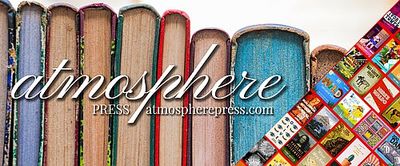
250 copies • Partial manuscript.
Authors Unite helps you become a profitable author and make an impact. We take care of printing and distribution through major online retailers, developmental editing, and proofreading with unlimited revisions. We take care of the entire process for you from book cover design all the way to set up your backend so all your book royalties go straight to your bank account. We can also help with ghostwriting if you prefer not to have to figure out all the steps on how to write a book yourself.
With our book marketing services, you don’t need to worry about figuring out all the steps on how to market a book or how to become a bestselling author. We’ve helped hundreds of authors become bestselling authors on Amazon, USA Today, and The Wall Street Journal. We take care of the entire book launch process for you to help you sell thousands of copies of your book and become a bestselling author.
View case studies here: https://authorsunite.com

100 copies • Partial manuscript.
Bookmobile provides book printing, graphic design, and other resources to support book publishers in an ever-changing environment. Superior quality, excellent customer service, flexibility, and timely turnarounds have attracted nearly 1,000 satisfied clients to Bookmobile, including trade houses, university presses, independent publishers, museums, galleries, artists, and more. In addition, we manage eBook conversions and produce galleys, and regularly provide short-run reprints of 750 copies or fewer for major publishers such as Graywolf Press.

We have been in business since 1958 as a bindery. We are the third family to own the company.
1-800-957-0561
quotes@firstchoicebooks.ca
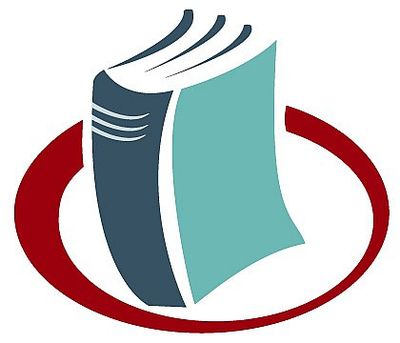
100 copies • Completed manuscript.
Happy Self Publishing has helped 500+ authors to get their books self-published, hit the #1 position in the Amazon bestseller charts, and also establish their author website & brand to grow their business. And the best thing is, we do all this without taking away your rights and royalties. Let's schedule a call to discuss the next steps in your book project: www.meetme.so/jyotsnaramachandran
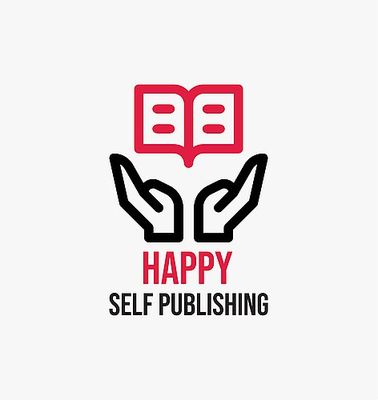
100 copies • Completed manuscript.
Jetlaunch book design and project management services give you back the hours you need to grow your publishing business. We've done work for John Lee Dumas, Ed Mylett, Rachel Pedersen, Dan Sullivan, Aaron Walker, Amy Landino (Schmittauer), Kary Oberbrunner, Jim Edwards, and many publishing companies. You retain all rights and royalties.

Get your ebooks into the biggest stores and keep the 100% of your royalties. Amazon, Apple iBooks, Google Play, Kobo, Nook by Barnes & Noble and more.
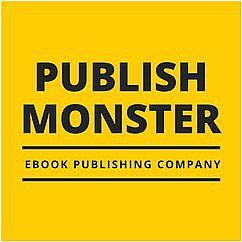
ShieldCrest are book publishers based in the UK who fill that vital gap for talented authors where mainstream publishers are unwilling to give them that chance. We strive for excellence and invest in our authors and are listed in FreeIndex as the number one independent publisher in the UK for price quality and service rated author satisfaction. We publish books of all genres including; fiction, historical, biographies and children's books.
ShieldCrest publishing continues to grow rapidly with satisfied authors throughout the UK and overseas. Our range of products includes paperbacks, hardbacks and digitised e-books in all formats used globally in the myriad of e-readers.
In addition to the above, ShieldCrest provides a complete range of services including book design and layout, illustrations, proof reading and editing. For marketing we offer author web page, press releases, social media marketing packages and many other support services to help both first time and experienced authors get their books into the market quickly and maximise on the opportunities available.
These services enable us to guide our authors through the process as we transform their manuscript into a professional book, which can take its place with pride next to any famous author's book of the same genre.
The staff at ShieldCrest have many years experience in the book industry and this wealth of experience is put at the disposal of our authors.
Our clients include established authors such as Diane Marshall who has been acclaimed as the best writing talent to come from Scotland for years by The Scotsman newspaper, and Prof Donald Longmore OBE, who performed the first heart transplant in the UK and has sold thousands of medical books used by students throughout the world. We also recently released "Martin Foran-The Forgotten Man" by J.R. Stephenson, which features fraud within the police, abuse within the prison service and injustices in the courts and has been featured in the press and on TV.
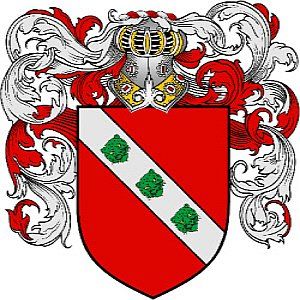
To celebrate Canada’s Sesquicentennial in 2017, a Kitchener-Waterloo citizens group proposed a sculpture park, to feature likenesses in bronze of Canada’s prime ministers. Funded by private subscription, it was to grace Kitchener’s Victoria Park.
Nice gift to the city: it might have become a tourist attraction.
Kitchener City Council torpedoed the project. Such gift horses were not acceptable. The proposed park was offered instead to the campus of Wilfrid Laurier University. The first statue, of Sir John A. Macdonald, was accordingly unveiled.
In February, 2016, WLU withdrew its support, and actually had the Macdonald statue pulled up and hauled away.
The stated reason, according to an online petition, is that it was “politically insensitive (if not offensive) to celebrate and memorialize all Canadian prime ministers … on land that traditionally belongs to the … Anishnaube and Haudenausanee
peoples...” i
The city of Kitchener had backed out on the grounds that it did not reflect the “diversity” of the region.
Celebrating Canada in Canada, on Canadian land, is offensive? Are we Canadians not entitled to our own land and our own history?
The online petition opposing the installation refers readers to a web page outlining similar protests in the US, against statues of Southern Civil War figures. ii
This helps explain the otherwise seeming non sequitor of statues of our prime ministers being somehow offensive to aboriginals: if something is happening in the US, we must imitate it in Canada, whether the case is comparable or not. If big brother does something, little brother must do it too. Not having had slavery, to any extend plausibly worth mentioning, we need to hold something against our early prime ministers.
Most and probably all Canadian prime ministers have been rather easygoing and ethnically inclusive in their attitudes and policies. You pretty much have to be, if you are going to get to be prime minister of Canada. This is part of the Canadian experience, if only due to the circumstance of being a half Anglophone, half Francophone, half Catholic, half Protestant nation run as a democracy. While politicians are by their trade not always entirely to be admired, it is absurd to see Kim Campbell or John Turner as war criminals. This is beyond anything even Godwin foresaw. But then, it is just as absurd to accuse Sir John A. Macdonald.
Let’s take Sir John A. He, after all, seems to be singled out for condemnation by the social justice league of Canada. It was his statue that was physically uprooted in Waterloo. In Kingston, January 11, 2015, Macdonald's 201st birthday, somebody slashed the tires of the man organizing a commemorative ceremony, as well as splashing his car with red paint. Presumably symbolizing blood. They also apparently, in eerie if unintentional echo of KKK traditions, burned a Canadian flag on the man’s lawn. One of the local “activists” (what might you prefer to call them?) is quoted by the papers referring to Macdonald as a “genocidal maniac.”
In previous years, the anniversary has been celebrated by nocturnal spraypainting—again with red paint—of the John A. statue in Kingston's city park with the phrases “This is stolen land,” “murderer,” and “colonizer.” An Idle No More protester explained: “Would people commemorate the crimes that Hitler did? Because this is basically the same principle.”
On the eve of Canada’s 150th year, in response to Prime Minister Justin Trudeau’s New Year address, one activist writes
“… In praise of 150 years of the consolidation of this colonial-settler state, it [the address] ignores the very ground we’re presently occupying in common. Ground, land, that belonged to the Indigenous peoples of what is now called Canada. A colonial ‘success story’ always involves conquest, assimilation, dispossession, inter generational trauma, inequality and countless other injustices. The type of things Liberal prime ministers don’t include in their New Year’s messages, especially when kicking off things like Canada 150 celebrations. … The starting point for understanding the history of Canada is the colonial project, the theft of land, and the dispossession of and attempt to extinguish the Indigenous nations.” iii
Macdonald's unspeakable crimes, and those of all Canadians, are apparently these:
1. as per the Kingston graffito, that we stole Indian land;
2. that we deliberately killed Indians;
3. that we and he, through the residential schools system, waged “cultural genocide” on Indian traditions as well as enabling widespread child abuse;
4. that we and he waged active war against the Indians in 1885. iv
That seems to be the full bill of indictment. Let's deal with the charges in turn.
Everyone supposes so; it is not so. Kid brother syndrome to the contrary, the history of aboriginal-government relations is different in Canada and the US. Which is why the US-Canada border was known among plains Indians as the Medicine Line. Which is why, in both the Revolutionary War and the War of 1812, Indians rallied to British/Canadian colours in great numbers. The favourable treatment of Indians, in fact, protecting them from wildcat European settlement beyond the Appalachians, was one of the causes of the American Revolution, cited obliquely in the Declaration of Independence. v
Here was no Trail of Tears. Here was no Wounded Knee. Here, negotiated settlements, notably the numbered treaties that began under Macdonald, preceded any major settlement, along with the NWMP/RCMP to preserve peace and order—another initiative of Sir John A.'s. Their first mandate was to protect the natives against the predations of dubious non-aboriginal traders.
This policy of negotiated treaties and compensation for any lands deeded to non-native Canadians was largely due as well to Sir John A. Not everyone at the time felt it necessary. After all, Indians held and used land in a manner foreign to European norms. They were nomadic, in a sense never more than visitors, and their use of and therefore natural claim on any particular parcel of land was ephemeral. Their population was tiny; they had no need for so much land, nor were they using most of it. Boundaries between tribes were constantly shifting. (Note that, in the bill of indictment in Kitchener-Waterloo, the same land is assigned historically to the “Anishnaube [Algonquin] and Haudenausanee [Iroquois] peoples.” The two were for most of recorded history mortal enemies; and they were far from the only groups who passed through here. The Neutrals are also mentioned—wiped out by the Haudenausanee). Oliver Mowat, premier of Ontario for much of Macdonald's tenure, held that the Indians had no strictly legal rights in the matter, and their claims were purely moral. A celebrated Ontario court judgment of the time held the same. vi
Macdonald and his government instead adhered to earlier British policies, respecting native claims, setting a precedent honoured by future Canadian governments, and future Canadian prime ministers, without exception.
If someone sells you his house, you did not steal it. Especially when he held no clear title in the first place. If he comes back years later and demands more money, he is not an upright fellow. He certainly has no say if you choose to put a statue on your lawn.
Some natives have recently insisted that the Indian oral understanding of the original treaties was different from the government's written documents; that they, being non-literate, were lied to and conned by the government agents. They had intended to cede ownership of the land "only to the depth of a plough blade.” vii Their fellow Canadians therefore now owed them trillions in past resource revenue.
There are several problems with such claims.
First, there is a reason for the invention of writing. The original reason was to keep accurate records in case of dispute. Oral records can be reliable, if it is in everyone's interest to preserve them intact. But they can also be altered at any time by either party, and are therefore not of great evidentiary value. Written evidence preserves the matter beyond dispute. As a result, there is every reason to give written records absolute priority.
Second, this claim goes against the written text. In the words of Treaty Three, which become legal boilerplate for subsequent agreements: “[the Indian signatories] do hereby cede, release, surrender and yield up to the Government of the Dominion of Canada for Her Majesty the Queen and Her successors forever, all their rights, titles and privileges whatsoever, to the lands included.”
There is no ambiguity there. To accuse the government agents of misleading the Indians on this point requires accusing them of a truly breathtaking mendacity. Yet we assume without evidence the Indians must always be telling the truth?
Third, a large part of the very point of the treaties from the government's point of view was to allow for mineral extraction. To go back on that now would be unfair to that signatory.
Fourth, the native cultures were still in the stone age. They did not mine metals. They would have had little idea of value of any sort buried under ground, little use for it, and little reason to think anything of interest was down there. It seems unlikely they would have made any such reservation, even in their own minds.
Fifth, this being so, the government agents would have gained nothing by having lied on this point. It would have done nothing to improve their bargaining position.
Sixth, the intrinsic historical unlikeliness of the native claims is itself evidence that their “oral understanding” of the agreements might have been altered for their benefit, and is indeed not to be trusted.
Seventh, surprisingly enough, the issue actually did come up in treaty negotiations, and Alexander Morris, negotiating for the government, made clear that mineral rights were included in the cession. viii
To the second charge, then, in the bill of indictment: Macdonald and we non-native Canadians generally killed Indians by deliberate starvation. No doubt we would have used blankets infected with smallpox, too, if the smallpox vaccine had not become readily available by Confederation.
The essential bit of evidence usually given here is Macdonald's boast in the Commons, “[We] are doing all we can by refusing food until the Indians are on the verge of starvation...”
But note this: “on the verge.” At worst possible interpretation, Macdonald is saying that Indians may be hungry, but to the best of his knowledge, nobody is starving. Nevertheless, Dennis Gruending, writing for Rabble, accuses Kingston's favourite son of creating “the conditions for a tuberculosis epidemic in aboriginal communities.” ix
This is a bit of a stretch, since tuberculosis has been a major problem in aboriginal communities both before and after Sir John. It is currently at 31 times the rate found among the general Canadian population. x
Now, the words immediately before that “on the verge” are significant. A fuller quote is “We cannot allow them to die for want of food. We are doing all we can, by refusing food until the Indians are on the verge of starvation, to reduce the expense.”
That gives a little context. Simply on the face of it, there was no policy to starve the Indians, no genocide. Canada was in recession, and the opposition was challenging the government policy of sending food aid to the Indians as extravagant. Macdonald was defending against this attack. Canada at this time had no welfare, no disability, no child allowance, no old age pension. Other Canadians were left to sink or swim, as far as the government was involved. Yet this group was being helped out, by taking funds from other Canadians who might have needed it badly themselves.
Note too that there was no treaty obligation to send food. Treaty One, Two, Three, Four, Five, and Seven say nothing about the government being responsible for sending aid in any circumstances. Aboriginals were given seed, large tracts of land, and farm implements, and expected thenceforth to look after themselves. The wording of Treaty Six alone, of all the treaties in effect during Macdonald's time, gives a mandate for aid, but is ambiguous and leaves wiggle room:
That in the event hereafter of the Indians comprised within this treaty being overtaken by any pestilence, or by a general famine, the Queen, on being satisfied and certified thereof by Her Indian Agent or Agents, will grant to the Indians assistance of such character and to such extent as Her Chief Superintendent of Indian Affairs shall deem necessary and sufficient to relieve the Indians from the calamity that shall have befallen them. (Treaty Six)
At the discretion of the government, then―although it would have violated the spirit of Treaty Six to have done nothing.
Now consider what the government was being told by its Indian agents: that some Indian bands had stopped hunting, yet had not begun farming. They were under the impression that, now that they had treaties, the Great White Mother had an obligation to look after them.
The Indian Affair Branch writes at the time: “When the Deputy-Superintendent-General of Indian Affairs was on his reserve, in 1883, he found Poundmaker engaged in the not very praiseworthy occupation, for a chief, of dissuading his band from working at all, though they got full rations when they worked. He informed them that the Government was bound to feed them all the same, whether they worked or not.” xi
This put the government in an awkward position. “In this effort to encourage them to become self-supporting the Government is placed between two fires of hostile criticism. On the one hand it is charged with wasting the public money in feeding a lot of idle vagabonds. On the other band, if it stints the rations of the lazy and the thriftless, it is charged with starving the poor Indians.” xii
Charge number three from our bill of indictment: Macdonald was guilty of “cultural genocide” for founding the residential schools system.
All of the numbered treaties included the requirement that the government set up schools and pay for teachers,
And further, Her Majesty agrees to maintain a school on each reserve hereby made whenever the Indians of the reserve should desire it. (Treaty One, Treaty Two)
And further, Her Majesty agrees to maintain schools for instruction in such reserves hereby made as to Her Government of Her Dominion of Canada may seem advisable whenever the Indians of the reserve shall desire it. (Treaty Three)
Further, Her Majesty agrees to maintain a school in the reserve allotted to each band as soon as they settle on said reserve and are prepared for a teacher. (Treaty Four)
And further, Her Majesty agrees to maintain schools for instruction in such reserves hereby made as to Her Government of the Dominion of Canada may seem advisable, whenever the Indians of the reserve shall desire it. (Treaty Five, Treaty Six)
Further, Her Majesty agrees to pay the salary of such teachers to instruct the children of said Indians as to Her Government of Canada may seem advisable, when said Indians are settled on their Reserves and shall desire teachers. (Treaty Seven)
At whose insistence was this? Not the government's. Their priority was to spare expense, and this was an expense. It was at native request, and was one of their chief goals in signing the treaties. They could see that their traditional way of life was less desirable than that of the Europeans. They wanted the next generation to learn to farm or follow a trade, and to integrate. The treaties specified that schools would be built only where and when the Indians wanted; when they were, the majority of aboriginal children were always educated at day schools. The residential schools were for children whose homes were too remote or their parents’ lifestyle too nomadic to support a local school―or, in many cases, for orphans and the abandoned. The government did not want to pay for a residential school if they did not have to: it increased their costs per student. And good or bad, chosen or not, the fact that only a minority of native children were educated in residential schools makes mockery of the claim, often heard, that the residential schools are to blame for the ills of Indian society even today.
The basic idea of the residential schools, counter to the familiar claim, was not to eliminate native culture or to promote integration.
This is common sense: if the objective were integration, the obvious step would be to integrate Indian children into the public school system. This was the programme advocated for American blacks by Martin Luther King and the civil rights movement of the US South. If this in turn was “cultural genocide,” Martin Luther King is a criminal against humanity.
No doubt there was child abuse in the residential schools. It is a tragic certainty that those inclined to bully will want to choose careers, like teacher or palliative care nurse, which make this avocation easier to pursue. They will seek defenseless prey. They will, if possible, sign up for locations, like remote residential schools, where supervision is minimal.
Pedophiles are going to want jobs that put them in close contact with children, ideally without much supervision, for long periods of the day and night. Better if the pedophiles are in some formal relationship of control.
There are few ways to protect against this hazard; probably the best is to turn such positions over to those who have a clear religious or moral reason for wanting to be there, as this may explain their presence without assuming predatory instincts. Better still if they have some sort of moral supervision by a religious society and superior. Probably a vow of celibacy is even better.
This is the path the residential schools took. If it was not one hundred percent effective, nothing is. In recent years, we have been gradually realizing that this problem is pandemic in schools of all sorts; there is nothing special about, and certainly nothing intentional in the design of, residential schools, in this regard. Ironically, the very richest strata of society have traditionally insisted on paying large sums for the privilege of
sending their children into the same circumstances considered abusive when students are aboriginal.
In 2006-2007, a settlement of $2 billion was mandated by the courts―the largest class action settlement in Canadian history―to anyone who had gone to a residential school. Not just those who could demonstrate abuse―anyone. This was a huge transfer of wealth from fellow Canadians who obviously had nothing to do with the residential schools. Other than having to pay for them.
We did not. This seems to be another imitation of big brother America. It troubles some Canadians, it seems, that Canada had no Indian Wars.
The reference is to the Northwest Rebellion. The Indians, or rather a small group of Indians, made war on the Canadian government. A minority of Métis also made war.
Did they have valid grievances? So we usually hear, but this rationale warrants questioning. We seem always to get the Métis side, never the position of the government of the day. Everybody wants to believe in the purity of the motives of the noble savages. But the Canadian government had not, they insisted, ignored or denied their concerns. They had already agreed to recognize Métis ownership of their claimed land plots, and to survey in accord with Métis traditions―generally the matter cited as the main complaint behind the rebellion. This seems generous enough, given that these same Métis had already been awarded land in Manitoba.
Lord Minto writes:
"To these claims and assertions Ottawa answers that a commission had already been appointed to inquire into half-breed claims, that it was in the power of any half breed legally entitled to obtain a patent for his farm by following the ordinary legal process, that the claims put forward for the Manitoba settlement [to be repeated in Saskatchewan] are made by the very men who were already settled with in 1870, and that the Government form of survey can and will be, if required, so arranged as not in any way to interfere with the river frontages and farms— in fact, that 'the breeds' have no case at all." xiii
Of the four Métis who went to Montana to ask Riel to return and lead them, three had already been given government positions by the time the rebellion broke out—only months later. That looks conciliatory, and hardly like foot-dragging. Louis Riel sent his petition to Ottawa on December 16, 1884. The federal cabinet struck a three-man commission to review and settle Métis claims on January 28, 1885. Nevertheless, without waiting for word from the commission, and without any democratic mandate, Riel and his followers proclaimed a provisional government on March 19, and seized hostages. Riel threatened a “war of extermination” on March 21.
As to the Indians, Theresa Delaney, who lived among the Cree and whose husband was killed at Frog Lake, insists:
“But there is one thing I do know and most emphatically desire to express and have thoroughly understood and that is the fact, the Indians have no grievances and no complaints to make. Their treatment is of the best and most generous kind. The government spares no pains to attempt to make them adopt an agricultural life, to teach them to rely upon their own strength, to become independent people and good citizens.
“Many an English, Scotch or Irish farmer, when he comes poor to Canada and strives to take up a little farm for himself, if he had only one half the advantages that the government affords to the Indians, he would consider his fortune forever made. They need never want for food. Their rations are most regularly dealt out to them and they are paid to clear and cultivate their own land. They work for them selves and are, moreover, paid to do so and should a crop fail they are certain of their food, anyway. I ask if a man could reasonably expect more?" xiv
Even if there were real grievances, does this rebellion seem like a sensible way to get them resolved? Could Métis land claims and Indian hunger have been the true motives?
Not according to the testimony of “Wandering Spirit,” the Cree war chief who launched the aboriginal element of the rebellion with a massacre at Frog Lake. He explained to William Campbell, a survivor,
“Four years ago we were camped on the Missouri River in the Long Knives’ land [the US]. Riel was there, trading whiskey to the Indians. He gave us liquor and said he would make war on this country [Canada]. He asked us to join him in wiping out all Canadians.… Last fall Riel sent word to us that when the leaves came out the half-breeds would rise and kill all whites. The Long Knives [Americans] would come. They would buy the land, pay the Indians plenty money for it, and afterwards trade with them. All the tribes who wished to benefit must rise, too, and help rid the country of Canadians.” xv
Perhaps it was indeed attempted genocide, then. But not quite in the way we have been led to believe.
Lending credibility to the idea that it was all about plunder, two witnesses testified at his trial that Louis Riel had offered to forget the whole thing for a personal payment from the Canadian government of $35,000. xvi
Macdonald had the natural right of self defense, as well as the public duty to keep the country together and in possession of its territory; and to protect the lives and property of its citizens. What else could he responsibly do?
After a conventional trial and benefit of law, eight aboriginal leaders were hanged for murder, along with Louis Riel. Maybe they did not deserve it; but it was not really Macdonald's call. It was the decision of a duly constituted judge and jury, confirmed by the Provincial Supreme Court and an extraordinary review panel. Macdonald could have exercised mercy; but past experience surely argued against it. He had been magnanimous after the Red River Rebellion, and the upshot of that, after all, was another rebellion. He did extend a general amnesty within the year. The chief government response in the aftermath was to send more food aid to the Western reserves.
If this is the worst that can be brought against Canada's leaders, Canada stands as the most tolerant of nations. We ought to be celebrating this. How about a sculpture park?
Instead, Canada gets its land claimed and its traditions banned. If there is such a thing as cultural genocide, call that cultural genocide.
That is why you hold this book in your hands.
ihttps://www.change.org/p/wilfr...
iihttps://www.insidehighered.com...
iiiDerrick O’Keefe, “Canada 150: Against liberal revisionism and false consensus,” Medium.com
ivCharges are per Timothy J. Stanley, “John A. Macdonald’s Aryan Canada: Aboriginal Genocide and Chinese Exclusion,” Active History, July 30, 2015.
v“He [George III] ... has endeavoured to bring on the inhabitants of our frontiers, the merciless Indian Savages whose known rule of warfare, is an undistinguished destruction of all ages, sexes and conditions.”
viTristin Hopper, "Sure, John A. Macdonald was a racist, colonizer and misogynist — but so were most Canadians back then,” National Post, January 10, 2015.
viiD. J. Hall, From Treaties to Reserves, Kingston: McGill/Queen’s University Press, 2015, p. 75.
viiiRobert J. Talbot, Negotiating the Numbered Treaties, Vancouver: UBC Press, 2009, p. 100.
ix“How do we judge Sir John A. Macdonald for starving Indigenous people?” January 30, 2015.
xBill Curry, “Aboriginals in Canada face 'Third World'-level risk of tuberculosis,” Globe & Mail, March 10, 2010.
xiFacts Respecting Indian Administration in the North-West. Ottawa: Indian Affairs Branch, 1886, p. 38.
xiiIbid, p. 6.
xiiiGilbert Elliot, Earl of Minto, “The Recent Rebellion in North-West Canada,” The Nineteenth Century, Aug. 1885, v. 18, no. 102, p. 314.
xivTheresa Gowanlock and Theresa Delaney, Two Months in the Camp of Big Bear. Parkdale, ON: Times, 1885, p. 100.
xvhttp://members.shaw.ca/bcsk/ti...
xviJ.J. Curran, “Debate on Louis Riel,” Ottawa: Hansard, 1886, pp. 8-9.
The editing of "Playing the Indian Card" has taken longer than I had expected. I got one of the best editors in the business to go over it; …
Only four days left in which to place your order for an advance copy of Playing the Indian Card.
Don't miss out!
A donor has just …
Hi, Gang!
We're down to the final week of the Publishizer promotion for my new book, Playing the Indian Card.
That means that, if you …
Hi, Gang!
Four publishers are now interested in Playing the Indian Card.
However, I'd like to have the widest distribution possible. This is important …
Hi, gang!
Playing the Indian Card is ranked by Publishizer as Number One in politics!
Pre-order at https://publishizer.com/playing-the-indian-card/
Remember, this is for a limited time only. Be …
Hi, gang!
At this point, we have three publishers expressing interest in Playing the Indian Card.
So this looks like a go regardless.
But please do …
Hi!
Playing the Indian Card now has a Facebook page!
Visit the page at fb.me/playingtheindiancard and send your Page messages at m.me/playingtheindiancard.
It features historical …
Great news! I have now officially launched the pre-order campaign for Playing the Indian Card at Publishizer. The book that will blow apart everything you think …
Thanks, Steve. Look forward to getting my signed copy of this book. Please address it to me! Thanks. Violet.
Hi Steve, looking forward to the book!
$10
1 reader
Get your own copy of ebook with (I hope) colour illustrations.
Sure to make you devastating in debates and at cocktail parties.
Includes the hard facts to back up your arguments, and quotations from original sources.
Includes:
$20
4 readers
Your own hard copy of book hot off the press. Printed on fine Canadian paper.
Ridiculously cheap for a big, well-researched and well-written, groundbreaking book like this.
And you get a First Edition!
Includes ebook.
Includes:
$25
12 readers
Make it personal. Get your own copy of the book, signed by author.
Includes ebook.
Includes:
$35
0 readers
Your own hard copy of book hot off the press.
Plus, public thanks on my popular blog, "Od's Blog."
http://odsblog.blogspot.com/
Good advertising!
Includes ebook.
Includes:
$50
0 readers
Signed copy of book plus a private half-hour Skype session with author.
Give him advice, tell him your story, ask him questions, berate him if you must, advance the conversation.
Includes ebook.
Includes:
$60
0 readers
A live half-hour online seminar with the author in person through Zoom for up to 50 participants.
Includes copies of the ebook for all participants.
Includes:
$100
0 readers
Receive personal acknowledgement in the book as a sponsor.
Your name in lights!
Comes with five copies of the book and the ebook.
Includes:
on May 23, 2017, 11:50 a.m.
I can't wait to read it -- I am sure that it will be a refreshing perspective on the issues surrounding Canada's indigenous people